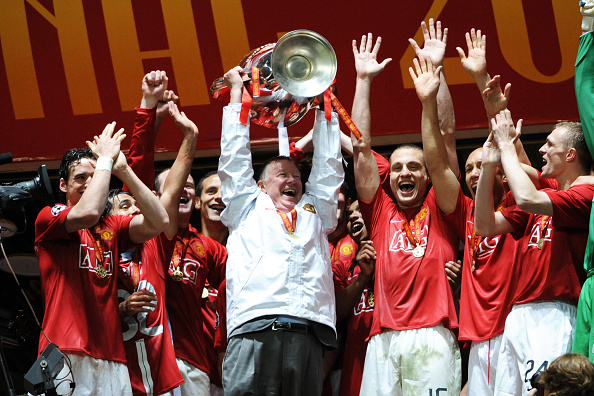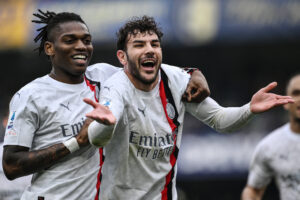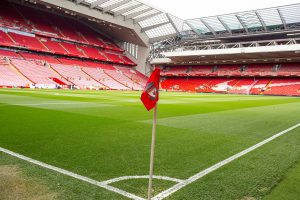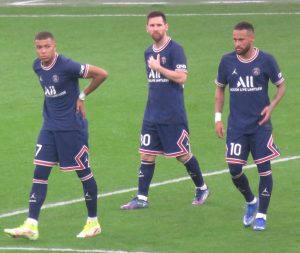As the Champions League resumes this week, Premier League sides make up three of the bookies’ four favourites to land the famous trophy. Needless to say one of these sides isn’t Manchester United. Bayern Munich are the second favourites behind Manchester City, while Paris Saint-Germain and Real Madrid find themselves further back due to the fact they meet in the round of 16. Barring another dark horse run from Erik ten Hag’s Ajax, these are likely the only three sides who can stop another all-English final. Despite this, the current period may not be seen by many as the strongest era of the Premier League, with a time almost 20 years ago considered even more dominant.
Could This Be the Strongest Era of the Premier League?
European Success
In the last four years, three of the Champions League finals have been comprised at least in part of English teams, with two of these having been all-English affairs, adding weight to the argument that we’re currently experiencing the strongest period of English football. It’s oft-forgotten that football existed before 1992, a time when English sides were able to take home six titles in a row from 1976-77 to 1981-82 – Liverpool (3), Nottingham Forest (2), Aston Villa (1), but for the sake of this argument we’ll focus on the Premier League era.
Yes, it is accurate to say that the English sides are currently the strongest in Europe with City, Liverpool, Chelsea and even Spurs making finals in recent years. The league also possesses arguably the four best coaches in the modern game.
But the strength of the English top-flight is often stated with little context or consideration for the state of the other top leagues in Europe, namely Spain and Italy. La Liga is arguably at its lowest ebb since the mid-90s with Barcelona in financial ruin and Real in transition following the departure of Cristiano Ronaldo, Sergio Ramos and Zinedine Zidane and the end of their Champions League dynasty. Serie A simply can’t compete with the riches of the Premier League, both in its television deals and its owners, and is a shell of the league it once was.
A Counter Argument
So, yes the Premier League is considered by most to be the “Best League in the World” at the moment. In terms of this being its best era, though, one can present a counter argument in the shape of the years from 2004 to 2009, when English sides ruled Europe for the first time in two decades.
In the fallow years from 1985-86 to 2003-2004, there was just one English representative in the final of Europe’s premier competition – Manchester United in 1999. The primary cause of this was the five-year European ban placed on English sides following the Heysel stadium disaster in 1985 which saw England fall behind and be forced to play catch up to Italy for all of the 1990s.
By the early 2000s, the English clubs had begun to reap the commercial dividends of the Premier League and looked ready to compete once again.
2003 saw the winds of change sweep through English football with Roman Abramovich and his Russian Roubles changing the landscape of English football forever.
This was followed up by Jose Mourinho and Rafael Benitez landing on English shores in 2004 and a tactical Europeanisation of the league – both men arrived as European champions; Jose with the Champions League, Rafa the UEFA Cup. The legendary Sir Alex Ferguson also cannot be forgotten.
Adapting for Europe in the Strongest Era of the Premier League
These seismic events completely disrupted the established order, with United and Arsenal enjoying a duopoly for much of the previous decade, but helped both, mainly United, in their quest for European success – Fergie had already moved to a 4-5-1 approach in Europe with Carlos Queiroz to middling effect.
The following five seasons saw the Premier League actually become the “Best League in the World” and not just a slogan used by Sky to sell the product.
Just look at some of the stats. All five seasons saw an English side in the final – Liverpool in ’05 and ’07, Arsenal in ’06 (their sole European Cup final), Chelsea in ’08 and United in ’08 and ’09. For more, there were three English semi-finalists in the seasons from ’06-07 to ’08-09.
Title races also went to the wire in these three seasons, something rarely seen nowadays in the era of runaway leaders being established in January and months-long processions.
2007-2008 – England Rule Europe, but Not the Euros
The apex of this era came in ’07-08. As mentioned above, United and Chelsea met in the final, the Red Devils winning on penalties. Fergie’s side also pipped the Blues to the line in the league on the last day of the season. Chelsea had knocked Liverpool out in the semis in extra time. Liverpool did the same to Arsenal in the quarters. No English side fell at the hands of anyone but their own.
Adding to this, United defeated Lyon, Roma and Barcelona on route to the final. Liverpool won 5-0 on aggregate versus Real Madrid in the quarters. Arsenal knocked out the defending champions AC Milan in the last 16, winning 2-0 in the San Siro.
This was the United of Cristiano Ronaldo and Wayne Rooney. The Chelsea of Frank Lampard and Didier Drogba. The Arsenal of Cesc Fabregas and Emmanuel Adebayor. The Liverpool of Steven Gerrard and Fernando Torres. Peak duos in a peak season.
It isn’t folly to suggest that the top four sides in Europe in that season were the top four sides in the Premier League. Something you certainly can’t say now.
There was also a certain kind of romance and purity left in the game, again something that couldn’t be attached to today.
Weirdly despite this club success, the English national team, and the so-called golden generation, didn’t qualify for EURO 2008.
How Did This Era Come To a Halt?
It was not long before Spain came roaring back, though. 2009 saw Barcelona overcome United in resounding fashion in the Champions League final, a final they shouldn’t even have been in. As Didier Drogba could attest to, it seemed like a conspiracy that kept Chelsea away from the Stadio Olimpico that campaign.
The final itself was a seminal moment. It was the rise of Barcelona, of Pep Guardiola and Lionel Messi. It was Ronaldo’s last game for United before departing for Real. It was the end of Fergie’s last great side. It was the end of the Premier League’s golden era.
Other compounding factors were the departures of Mourinho (’07) and Benitez (’10) as well as the decline of Arsenal and Arsene Wenger.
2011 saw a much weaker United side lose more convincingly to an even better Barca, and 2012 was Chelsea’s year – a miracle victory to rival that of Istanbul in ’05. But that was it.
Barca won again in 2015, Real won in 2014, 2016, 2017 and 2018. Messi and Ronaldo kept the Premier League – and all other leagues – in their shadow.
The Empire Strikes Back
The arrivals of Klopp and Guardiola have had a similar if not greater effect on English football than those of /Mourinho and Benitez but there’s still a way to go yet before a definitive claim can be made that what we’re living through right now is the peak of Premier League football.
Main Photo






